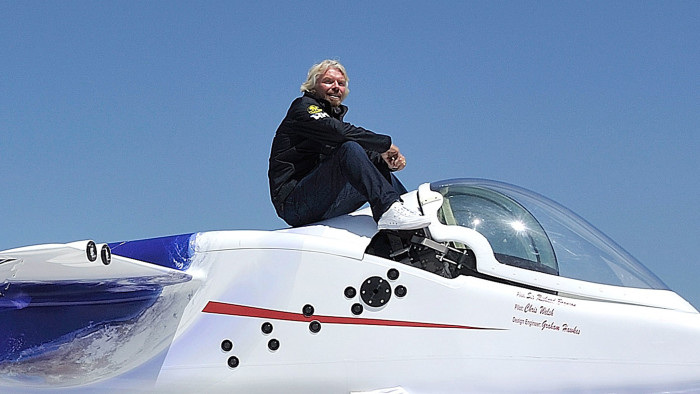Technology delivers options for entrepreneurs

Roula Khalaf, Editor of the FT, selects her favourite stories in this weekly newsletter.
Sir Richard Branson used the proceeds from the sale of an unclaimed necklace that his mother had found in the street to fund his first business venture in the 1970s, a magazine aimed at teenagers. A decade later, Nick Wheeler combined an inheritance from an aunt with a personal bank loan to buy a £25,000 Aston Martin that he sold 12 months later for four times the price, providing the money to launch his shirt business, Charles Tyrwhitt.
Raising capital to fund a start-up has seldom been conventional. But the arrival of the connected online world has led many people to believe the chances of securing the necessary money to launch a venture have increased considerably and being able to do so is now less about the good luck and family connections that helped the likes of Sir Richard or Mr Wheeler.
Crowdfunding — pitching your idea on an online fundraising platform — has fuelled excitement about the potential to raise large sums in the early days of a start-up.
In the UK, the volume of fundraising conducted through crowdfunding and peer-to-peer lending more than doubled in size in 2013 to £1.74bn, according to research body Nesta in a recent report on the subject. It also estimated that this UK market could reach £15bn by 2020. However, it is important to keep such figures in perspective. Even at these levels, online fundraising marketplaces still represent only a fraction of conventional bank lending, and official data shows that the vast majority of entrepreneurs self-fund their ventures in the early days.
Data from the Global Entrepreneurship Monitor (GEM) — an annual trawl of start-up activity, which started in 1999 as a joint venture between US-based Babson College and London Business School — have consistently shown that only about a third of early stage funding comes from external sources. Much is from family and friends, plus the last of the so-called three Fs: fools.
Angel investors, wealthy individual backers of start-ups, make up less than 5 per cent of funding in the early stages, according to GEM.
“There is no doubt that the availability of crowdfunding has given many nascent entrepreneurs another avenue of options and helped inspire people who might otherwise have been less likely to start,” says Andrew Corbett, a faculty director at Babson.
Accumulating funds is only part of the justification for raising capital in the early stages of a company’s life. As important is the support and advice a backer can provide, says Mr Corbett.
“There is money and then there is smart money, meaning funding that comes with insight, counsel and networks,” he says. “The advice, insight and networking that comes from the close ties you can develop with experienced former entrepreneurs or family members or advisers who have significant business experience can be as valuable as the money itself.” Such support can make the difference between being able to successfully execute or not, he adds.
Carlos Espinal a partner at Seedcamp, a London-based accelerator fund aimed at helping to nurture early stage technology companies, has recently published a book on the subject.
Fundraising Field Guide discusses how to acquire a “fundraising mindset”. Mr Espinal says recent technological developments have not made raising capital easier.
“Fundraising is not easy. In fact, it is one of the most frustrating and time-draining activities you as a founder will have to do as part of your company’s growth strategy,” says Mr Espinal.
Crowdfunding is not yet the norm for the majority of early stage ventures looking to raise funds, he says. “People are still working out how crowdfunding will be used because it ranges from people selling T-shirts on Kickstarter all the way to equity funding on platforms like Seedrs and Crowdcube.”
Mr Espinal says fundraising is a process of building the right relationships and these take time to develop. The process, from when founders start taking meetings until they seal a deal, can take up to eight months for an early stage round, and an average of six months for subsequent rounds, says Mr Espinal.
Founders cannot afford to procrastinate when it comes to financing a start-up, he adds. “If you wait until you’ve nearly run out of cash you’ll be in desperation mode and it will make the process considerably more stressful and more difficult. Your idea is of no use . . . if you run out of money before making it a reality.”
Technological developments such as cloud computing and the increased processing power in ever-smaller, cheaper and more user-friendly devices has also driven down the cost of starting a business.
One consequence is that it may not be necessary to raise funds at all, says John Mullins, associate professor of marketing and entrepreneurship at London Business School, and author of the book, The Customer-Funded Business.
“For many services businesses, all you need is a first customer who will write you a cheque,” he says. “If you’re solving a compelling problem for your customer, they will pay you in advance to do so. And if you’re not, maybe that is good information to have up front, before you waste too much of your precious time and money.”
Comments